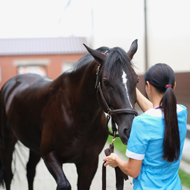Call for research into antibiotic resistance in environment
Fewer than 750 out of over 13,000 studies focused on environmental spread.
A review of thousands of studies into antimicrobial resistance has highlighted a lack of research into its presence in the environment.
The analysis also revealed key limitations within these studies, which researchers believe could pose difficulties for human health.
The study involved the review of more than 13,000 studies across three decades. It was led by the University of Surrey, alongside the University of Galway and the Royal (Dick) School of Veterinary Studies.
Researchers discovered that fewer than 750 studies were concerned with the spread of antibiotic resistance in air, water and green spaces.
The majority of the studies focused on wealthy countries and freshwater settings. Meanwhile low-income regions and other environmental settings were overlooked.
Experts are calling for knowledge gaps to be filled, to avoid the spread of antibiotic resistance in under-studied environments.
Among the research projects suggested by experts include monitoring wastewater release and improving understanding of climate change’s impact on atmospheric pollutants. They also call for a better understanding of the exchange of antibiotic-resistant bacteria between the land, air and sea.
A survey revealed that one third of the studies had been completed in China, with the USA producing the second most number of studies.
However fewer than one per cent were led by researchers in Afghanistan, Ethiopia and Uganda. According to a study in Environmental International, these are the countries where the impact of antibiotic resistance on health will be the highest.
The research team noted an absence of studies linking antibiotic resistance to climate change and microplastics. Though this trend may have since changed, researchers believe it will not have changed enough to answer key questions.
Meanwhile the two most studied organisms were the Escherichia coli and Pseudomonas, while genes conferring resistance to medicines were also prominently researched.
Dr Iñaki Deza-Cruz, of the Royal (Dick) School of Veterinary Studies, said: “To understand the development of AMR in the environment, it is key that we study it comprehensively, across a range of circumstances and socio-economic settings.
“This complex, urgent challenge needs to be understood in terms of its impact across the health of people, animals and the environment, so that mitigating measures can be effective.”
The full analysis can be found in the journal Environmental International.
Image © Shutterstock



 The BEVA has opened two new roles on its Nurse Committee.
The BEVA has opened two new roles on its Nurse Committee.